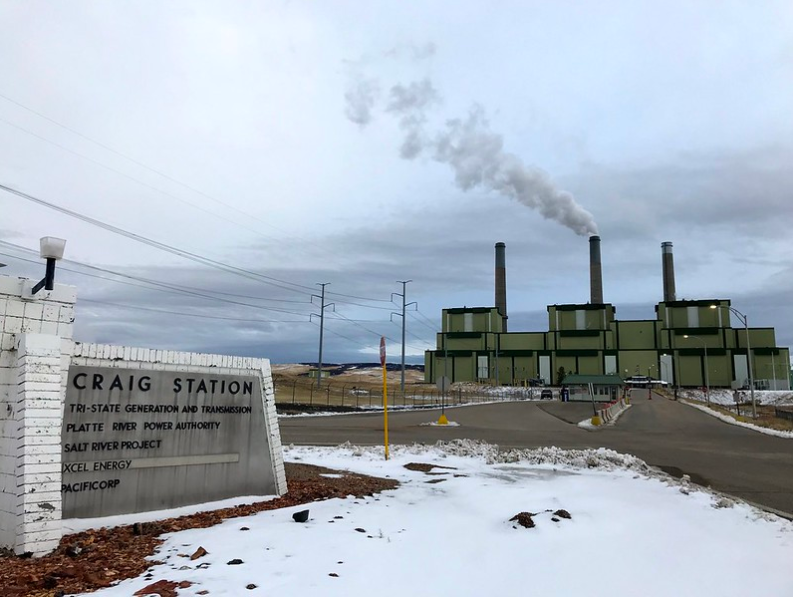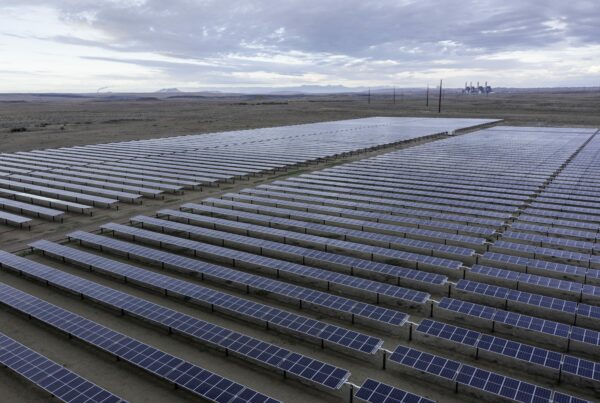Photo: WildEarth Guardians
Last week, Tri-State announced it intended to close its Colorado and New Mexico coal generation assets ahead of schedule. This week Tri-State made a second announcement on its Responsible Energy Plan.
Notably, Tri-State will:
- Strive for 100% clean energy in Colorado by 2040
- Bring 1 gigawatt of wind and solar energy onto their grid
- Increase member flexibility
This plan is a great first step- we are excited to see Tri-State finally moving towards a responsible energy future! However, there is still work to be done: here, we’ll break down a few elements of the plan and what we’re still hoping to see from Tri-State.
Emissions:
Tri-State announced that they are working to achieve a 90% reduction in carbon dioxide emissions across Colorado generation facilities, and have canceled all their coal expansion projects. This is huge news, and a big win for the air we breathe!
However, Tri-State still owns hundreds of megawatts of coal generation in Wyoming and Arizona. Colorado consumers could still be using coal-fired energy that’s just produced in another state. If Tri-State is serious about reducing system-wide emissions, they need retirement plans for these out of state facilities too.
Tri-State also needs to submit a robust transition plan for impacted workers and communities. The writing has been on the wall for coal for years, but Tri-State had doubled down on their coal assets, making false promises that the fossil fuel was economically viable. Now, almost out of the blue, hundreds of workers are looking at an uncertain future.
Tri-State has a chance to do what’s right: we’ll be watching to make sure they live up to the promises in their announcement and work with impacted communities, legislators, and other leaders to support a just transition away from coal.
Renewables:
Right now, Tri-State generates almost half its power from coal, and wind and solar only account for about 9% of their total load. This new plan would increase their renewable energy from wind and solar by 50%.
This is great news- Tri-State is finally looking ahead to the future and catching up to other power providers. Unfortunately, this new plan was conceived with no local input, and still does not allow for local co-ops to build their own renewable resources.
The cost of coal has steadily crept up, and the costs of renewables have plummeted, so this announcement looks good for our rates. Tri-State still has over 3 billion dollars in debt, and closing down coal plants won’t make that magically go away.
Our rates under Tri-State are up to 20% higher than other Colorado customers- how long will we have to wait before seeing our rates go down? We applaud Tri-State beginning to transition to a more affordable energy source, but still don’t have answers on how the plan will affect our rates.
Flexibility:
Tri-State also announced that they are working to increase contract flexibility, and expect that their contract committee will make recommendations to the Tri-State Board by this April.
At that point, this process will have been going on for an entire year, with hardly any updates to members about what new contract options will be available. And even though they claim to be working on flexibility, Tri-State is still putting off working with LPEA on its restrictive contract and they have not released their moratorium on issuing buyout numbers.
Increased local generation and flexibility are crucial pieces to energy transition– we need to see robust policy changes to Tri-State’s restrictive contracts in order to reap the rewards of local job creation and revenue boosts.
We are advocating for clean, affordable, local power here in Southwest Colorado. While a great step in the right direction, Tri-State’s announcement still only meets one of those requirements.
The Responsible Energy Plan is a good first start, and we are excited to see Tri-State commit to clean energy. There is still work to be done, though: we want to see Tri-State close its Wyoming and Arizona coal assets, stabilize rates, and submit a robust transition plan for impacted workers and communities.


